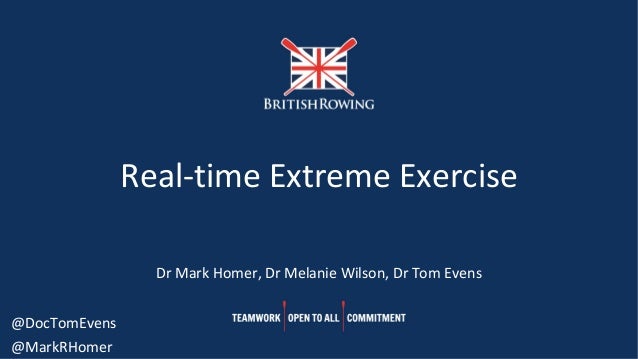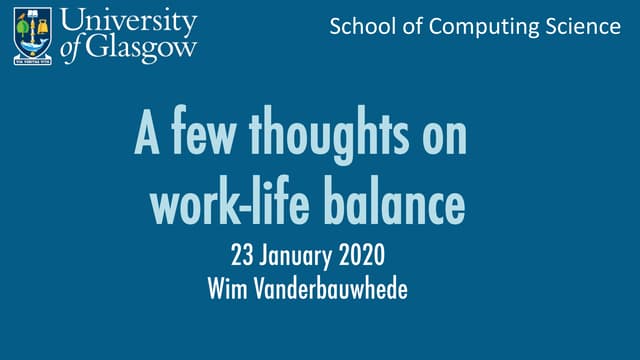-
Be the first to like this
-
What to Upload to SlideShare by SlideShare 5520459 views
-
Customer Code: Creating a Company C... by HubSpot 4124708 views
-
Be A Great Product Leader (Amplify,... by Adam Nash 924042 views
-
Trillion Dollar Coach Book (Bill Ca... by Eric Schmidt 1091250 views
-
APIdays Paris 2019 - Innovation @ s... by apidays 1238040 views
-
A few thoughts on work life-balance by Wim Vanderbauwhede 956289 views
Adaptive Physiology: Extreme Exercise - Tom Evens, Mark Homer and Mel Wilson
Published on
This talk from SOA2018 brings adaptive physiology to life. Mel Wilson is an Olympic Rowing Medallist. Watch the Rio race here https://www.youtube.com/watch?v=paRQ7IgYLhk
Tom Evens is an Emergency Physician at Imperial College Healthcare, and also a consultant in Prehospital Care at Barts Health and London’s Air Ambulance.
He leads the Human Performance workstream at London’s Air Ambulance, and is a convenor of the London Performance Psychology Symposium for the Institute of Prehospital Care.
With a background in the sport of rowing, he has coached elite athletes in Australia and the UK. He has coached a World Cup Silver medal, and his athletes have gone on to win Olympic and World Championship medals. In the course of this work, he developed an interest in sports physiology, performance psychology, and ergonomics.
Tom now works with UK Sport, the FA and other elite organisations to support coaches to apply the performance lessons from successful medical teams to their own work.
Mark Homer - Following a brief career in teaching, Mark has worked for British Rowing for 11 years, supporting the team as a physiologist through 3 Olympic cycles and directly at the Beijing, London and Rio Games. During this time he completed a PhD titled ‘Determinants of Rowing Performance – Implications for Developing Rowers’. He has recently become the Head of High Performance Science & Medicine, tasked with leading the various support services and coordinating the research and innovation strategy in preparation for the Tokyo Games.
Melanie Wilson - is a double Olympian, and won an historic silver medal in the Rio Olympic Games, rowing as part of the women’s eight. She studied medicine alongside her training for both Olympics, and now works at a hospital in North West London, with aspirations to train in anaesthetics. She’s interested in the cross over between sports and medicine, in particular teamwork and performance under pressure. She has presented at conferences focusing on using skills from different industries and applying them to clinical performance.
Adaptive Physiology: Extreme Exercise - Tom Evens, Mark Homer and Mel Wilson
- 1. 1 Real-time Extreme Exercise Dr Mark Homer, Dr Melanie Wilson, Dr Tom Evens @DocTomEvens @MarkRHomer
- 2. 2 bit.ly/RealTimeExtremePhysiology
- 3. 3 Power x Technique x Performance = Results
- 4. 4 Power at VO2 Power at VO2max Ergo Power Ergo Rate
- 5. 5 Strength Endurance
- 6. 6
- 7. 7
- 8. 8 Anaerobic Contribution Aerobic Contribution VO2 Kinetics VO2max Anaerobic Capacity
- 9. 9
- 10. 10
- 11. 11 Big Economical Engine Big Uneconomical EngineSmall Uneconomical Engine Small Economical Engine 8L / 15mpg 1.8L / 18mpg 2.7L / 35mpg 0.8L / 70mpg 3.5L / 28mpg
- 12. 12
- 13. 13 pH 6.74 Lactate 32 Bicarb Undetectable Nielsen, Acta Physiolog Scand 1999
- 14. 14 What’s going on in the unsustainable zone? What does it feel like? Why are they not dead? What’s with the lactate?
- 15. 15 Central Peripheral Chemoceptive and Nociceptive Afferents Sarcolemmal Pi Seratonin effect Sarcolemmal H+ IL-6 Impaired Calcium re-uptake Ammonia Muscle Contraction Brain Glycogen Depletion Heat After Boyas et al. Ann Phys Rehab. 2011
- 16. “Like you're in the middle of a fire. And someone is still asking you to row”
- 17. “My teeth feel like they’re going to fall out”
- 18. “like there is no way out no matter how hard you pray”
- 19. “My legs feel heavy and hard. Like tree trunks”
- 20. “An overwhelming feeling that I might poo myself” “Never did” Anon
- 21. 23 It’s probably not the lactate..
- 22. 24 It’s probably not the lactate.. Extra mitochondrial ATP hydrolysis / Glycolysis are the primary so
- 23. 25 It’s probably not the lactate.. Extra mitochondrial ATP hydrolysis / Glycolysis are the primary so Lactate production consumes protons and yields NAD+ - Glucose - 2 - Glycogen -1
- 24. 26 It’s probably not the lactate.. Extra mitochondrial ATP hydrolysis / Glycolysis are the primary so Lactate production consumes protons and yields NAD+ - Glucose - 2 - Glycogen -1 Lactate co-transported with a proton - 75% oxidised in tissue / 25% gluconeogensis Roth. Arch Biochem Biophis 1990
- 25. 27 Lactate is an advantage / AAm Lactate/H+ pump increased 12% MCT pump increased 65% Pilegaard Am J Phys. 1999
- 26. 28 Why don’t they die?
- 27. 29
- 28. 30 Thank You








Login to see the comments